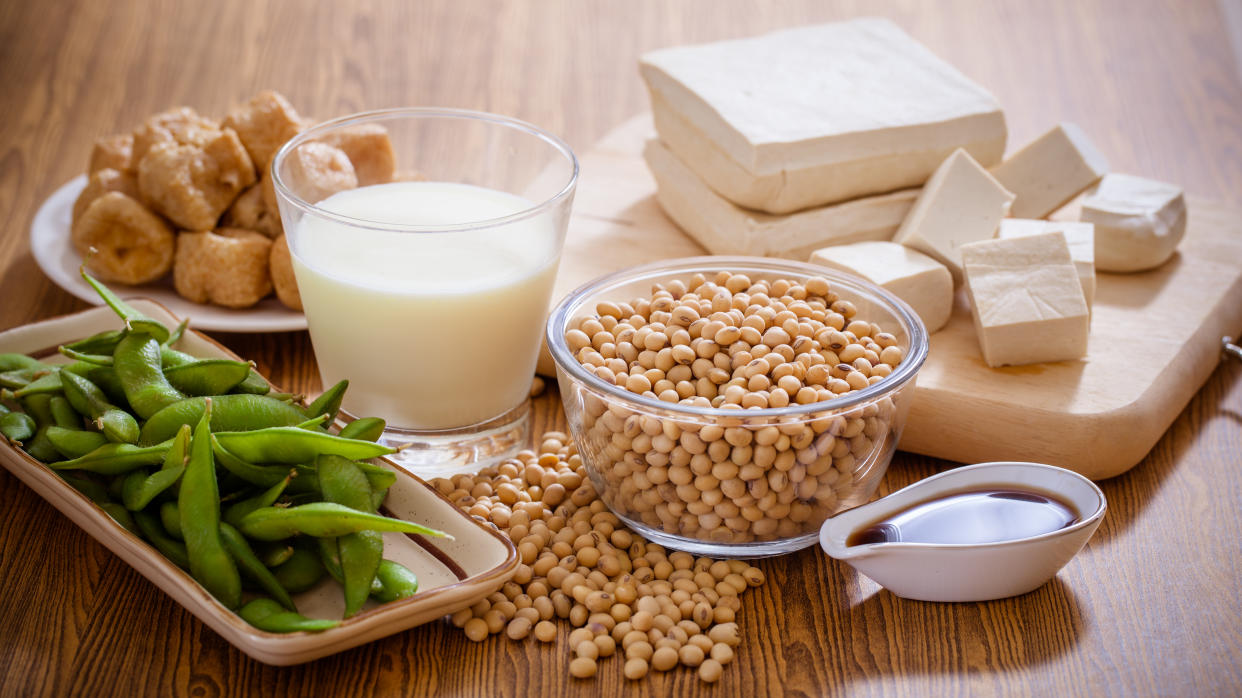Eating soy may help ward off dementia but only in those with specific gut bacteria, study suggests

Eating soy may help ward off dementia, but only for certain individuals, research suggests.
Japan has been dubbed a “super-aged society”, with more than a quarter (28%) of its residents aged 65 or over.
Despite its elderly population, Japan has the lowest rate of deaths by coronary heart disease in the world, with many crediting the high soy consumption.
With it increasingly being understood that “what is good for the heart is good for the brain”, scientists from the University of Pittsburgh set out to uncover if soy products – like tofu, miso and edamame beans – help to prevent dementia.
Read more: Three lifestyle habits could cut dementia rates in England by 8.5%
Results suggest soy can be broken down into a substance that wards off white matter lesions in the brain. These are often spotted in the scans of dementia patients, suggesting damage to the vital organ.
This only occurred, however, in people with specific gut bacteria. The scientists hope giving the substance via a supplement may one day help to prevent dementia.

Dementia affects 850,000 people in the UK, a figure which is expected to rise to 1.6 million by 2040.
In the US, 5.8 million people aged 65 or over are thought to be living with the memory-robbing disorder.
Dementia’s exact cause is unclear, however, it has been linked to a family history of the disease and certain lifestyle habits, like smoking.
Read more: Dementia onset linked to lack of interest in the world
Brain scans of patients have revealed white matter lesions. These indicate damage to the small blood vessels within the vital organ, as well as being a sign of inflammation and degeneration.
“White matter lesions are significant risk factors for cognitive decline, dementia and all-cause mortality,” said lead author Dr Akira Sekikawa.
Watch: Cold water swimming could help ward off dementia
To better understand how dementia could be prevented, the Pittsburgh scientists analysed blood samples from 91 elderly Japanese people with normal cognitive function.
The participants were grouped according to their equol levels. Equol is produced from the plant-based chemicals isoflavones when soy is broken down in the gut. Not everyone has gut bacteria that converts isoflavones into equol, however.
Over the next six to nine years, the participants had brain scans to detect any signs of dementia.
Read more: Faecal transplant may reverse age-related memory loss
Results, published in the journal Alzheimer's & Dementia: Translational Research & Clinical Interventions, suggest those with the highest levels of equol had fewer white matter lesions.
“We found 50% more white matter lesions in people who cannot produce equol compared to people who can produce it, which is a surprisingly huge effect,” said Dr Sekikawa.
Equol did not appear to reduce amyloid-beta deposits, the protein that is thought to be behind Alzheimer’s, the most common form of dementia.
Isoflavones on their own, without equol, had no impact on white matter lesions or amyloid-beta deposits.
Japanese-based studies have previously suggested soy isoflavones may ward off dementia and heart disease, however, this was not found in US research.
The Pittsburgh scientists believe this may come down to an individual’s microbiome. In Japan, between 40% and 70% of people have gut bacteria that convert isoflavones into equol. This is compared to just 20% to 30% of Americans.
Producing equol from soy isoflavones may be the key to unlocking soy’s brain benefits, according to the team.
Equol supplements could one day be combined with a healthy diet, like the Mediterranean eating plan, to help ward off dementia, the scientists suggested.
“This type of study always catches people's attention, but we cannot prove that equol protects against dementia until we get a randomised clinical trial with sufficient evidence,” said Dr Sekikawa.
Watch: The French village for Alzheimer’s patients

